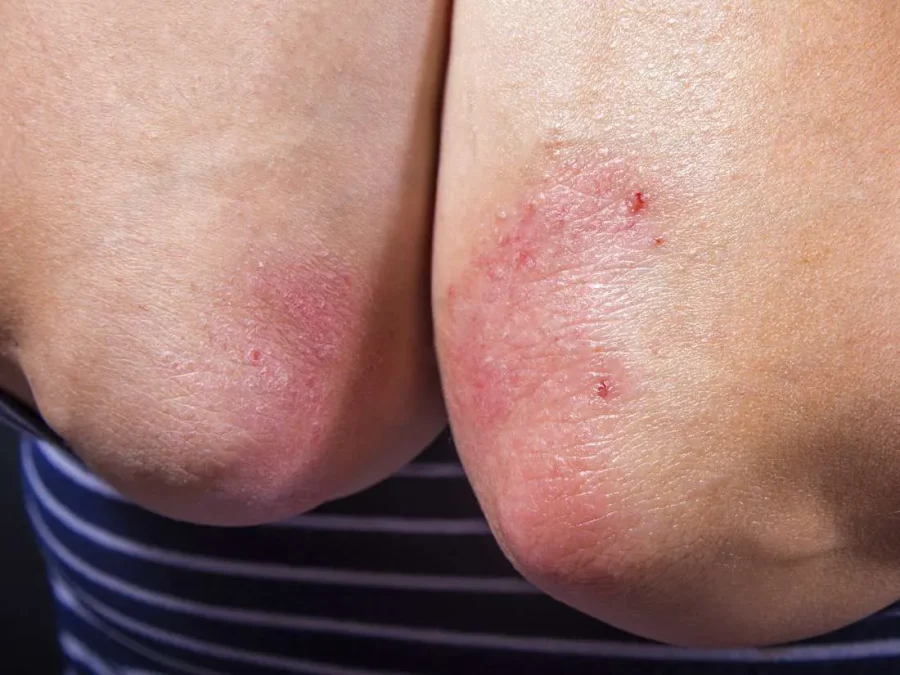Although the exact cause of psoriasis is unknown, doctors consider it an immune-mediated inflammatory disease. This means that inflammation is at the root of this condition.
Up to 3%Trusted Source of adults in the United States have psoriasis. It causes skin symptoms, such as raised plaques and discoloration, and can also affect other parts of the body, such as the joints and eyes.
Experts believe inflammation is the common factor that can affect these different areas.
In people with psoriasis, immune system dysfunction causes inflammatory cells to build up in the middle layer of the skin, known as the dermis. The condition also speeds the growth of skin cells in the epidermis, the outer skin layer.
Typically, skin cells grow and flake off in the span of a month. This process speeds up to just a few days in people with psoriasis. Instead of shedding, skin cells pile up on the skin’s surface, leading to uncomfortable symptoms such as raised plaques, scales, swelling, and redness or discoloration.
Even though psoriasis is a skin condition, the inflammation associated with psoriasis affectsTrusted Source the entire body. It can increase the risk of heart disease, cancer, inflammatory bowel disease, and psoriatic arthritis.
Although inflammation in psoriasis is due to immune system dysregulation, studiesTrusted Source suggest that people can reduce this inflammation through lifestyle and dietary changes. This can help reduce symptoms and improve quality of life.
Using these methods, many people who have psoriasis can maintain remission, which is a long period without experiencing psoriasis symptoms. Additionally, certain medications to treat psoriasis work by reducing inflammation. These include topical corticosteroids, injectable biologics, and oral medications. Everyone with psoriasis is different. Some people will require more extensive treatment than others.
While there is currently no cure for psoriasis, the following habits may help reduce psoriasis-related inflammation and increase a person’s chances of experiencing remission.
Eating a nutritious diet
Diet is strongly linked to systemic inflammation. Studies suggest that certain inflammatory dietary patterns can increase the risk of psoriasis and worsen symptoms.









